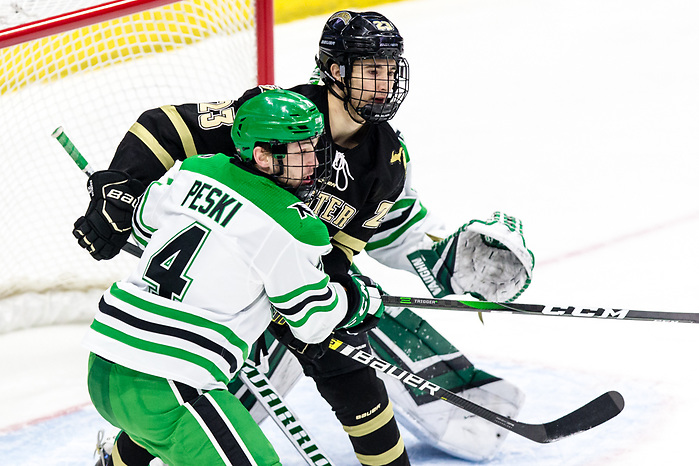
College hockey’s six Division I men’s conferences are planning alternate schedules should COVID-19 concerns delay the start of the 2020-21 season.
“We remain optimistic the 2020-21 season can be played, as scheduled,” wrote NCHC commissioner Josh Fenton in an email to USCHO. “However, the conference office has been modeling (and will continue to model) multiple scenarios related to financial operations and scheduling for next academic year as alternative plans.”
The NCHC will have several video conferences next week to replace what would have been taking place today and tomorrow in Naples, Fla., at the cancelled annual American Hockey Coaches Association convention, and COVID-19’s impact will be discussed.
“We will be prepared to adjust as necessary based on the information received from leadership at our institutions, along with federal and state health officials,” Fenton said.
In the east, where the virus has so far had the most significant and deadly impact, Atlantic Hockey and Hockey East are each looking at several approaches to a shortened or revamped schedule.
Atlantic Hockey associate commissioner Steffan Waters told USCHO that the league is looking at options in which non-conference games are eliminated, non-conference games are kept and conference games reduced, and also schedules that would reduce the total number of games from 34 to the NCAA minimum of 25.
However, even that minimum of 25 games may be relaxed, according to the NCAA.
The type of schedule Atlantic Hockey adopts would also depend on when the season gets underway. Atlantic Hockey is looking at November and January starts in its planning, Waters explained, “but ultimately it will depend on the states and if there are any restrictions left in place.”
Hockey East associate commissioner Brian Smith told USCHO via email that the conference is evaluating various options including a shortened league season of 20 games or whatever might be necessary that “retains as much schedule integrity as possible,” based on a start after Thanksgiving or in January.
Smith also noted that the league has examined how state restrictions could change the location of games. A contest might need to be moved from one participant’s campus to the other, or perhaps held at a neutral location.
Hockey East chose to delay the meetings it would have held in Naples this week to a later date, rather than meeting electronically. The league’s scheduling options will be discussed then.
“We don’t want to get too ahead of ourselves because, as we know, things are changing so rapidly,” Smith said.
ECAC Hockey is also considering alternate schedules, but has no specific scenarios worked out, according to the league.
On Monday, the Big Ten announced the formation of its “Task Force for Emerging Infectious Diseases” to provide counsel and medical advice to its 14 member institutions. While the Big Ten hockey conference would not comment on its scheduling plans, USCHO was able to confirm that the conference is actively planning for the possibility of a shortened or altered schedule.
Comments are closed.